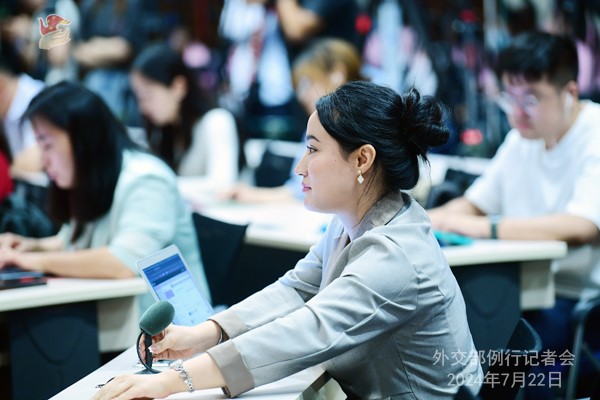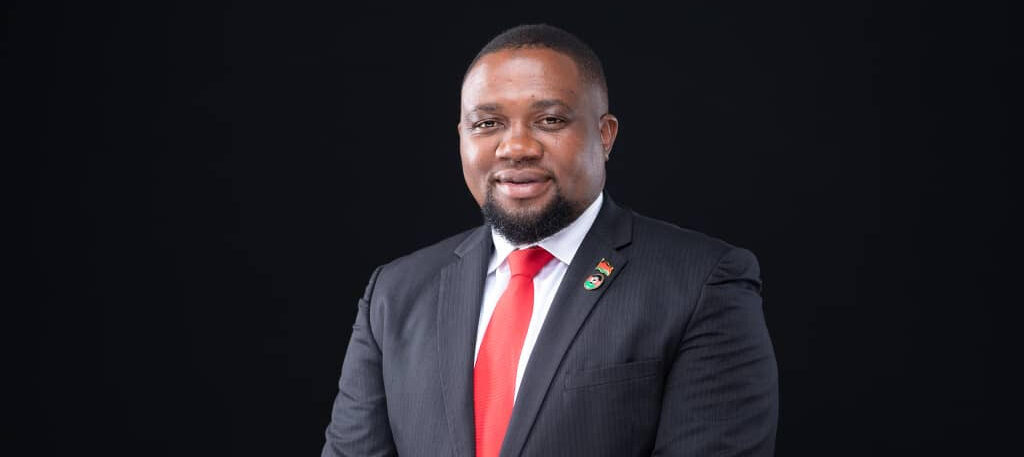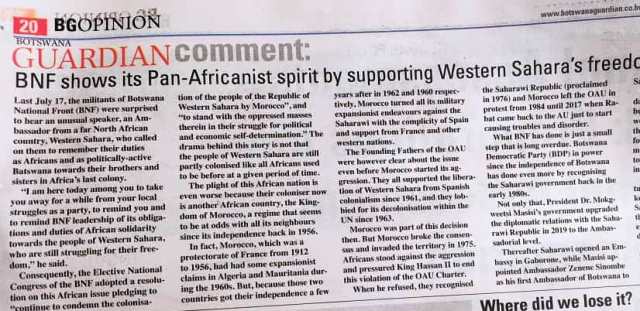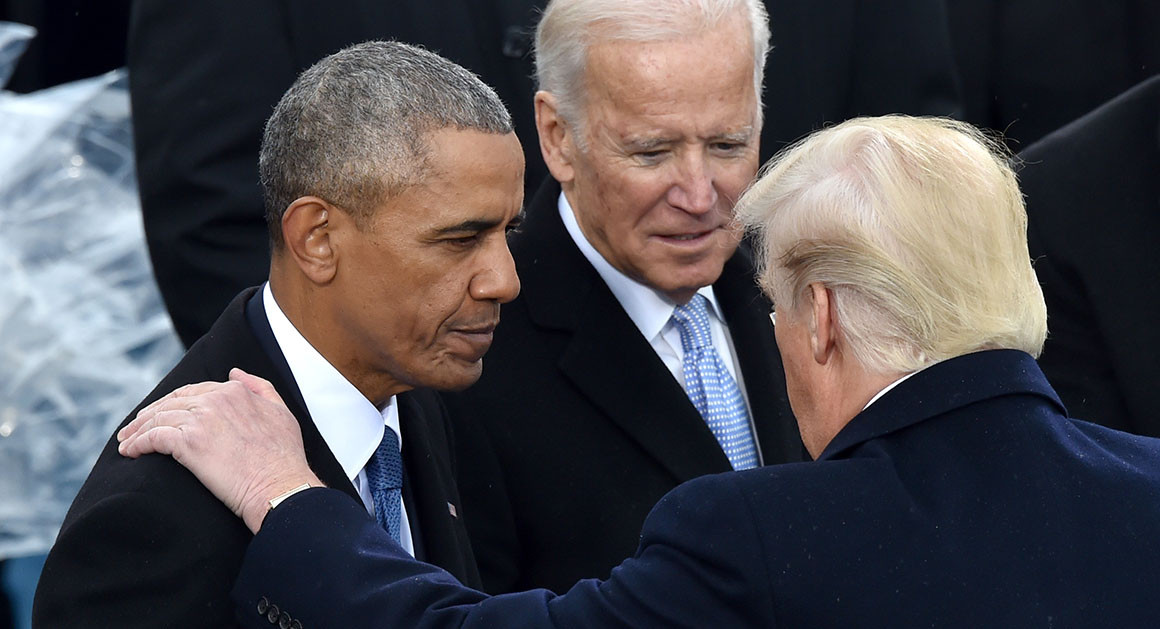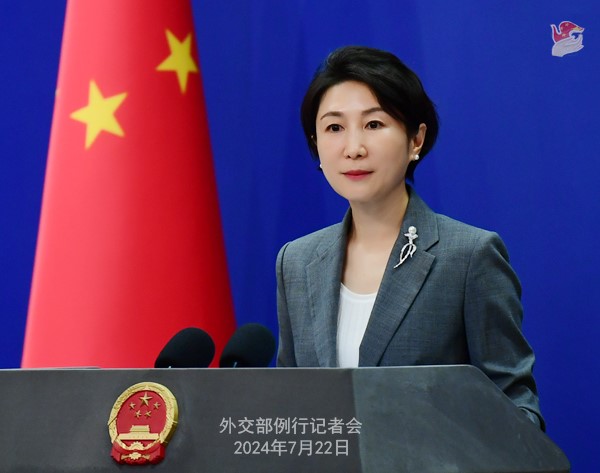
Mao Ning
At the invitation of the host country France and the International Olympic Committee, Vice President Han Zheng will travel to France as President Xi Jinping’s Special Representative to attend the Opening Ceremony and other events of the 33rd Olympic Games in Paris on July 26.
At the invitation of Member of the Political Bureau of the CPC Central Committee and Foreign Minister Wang Yi, Ukrainian Foreign Minister Dmytro Kuleba will visit China from July 23 to 26.
Shenzhen TV: Last week, the third plenary session of the 20th Central Committee of the Communist Party of China was held in Beijing and closely watched by the world. Some international media commented that the plenary session not only carries major importance for China’s own development, but will also have a significant impact on the world. What’s your comment?

Mao Ning: The third plenary session of the 20th Central Committee of the Communist Party of China is a highly important event. The session delved into the new circumstances and challenges facing Chinese modernization, formulated systemic plans for further deepening reform across the board, and provided an important window for the world on China’s pursuit of high-quality development and high-standard opening up in the new era.
One focus of the session is the expansion of China’s high-standard opening up. The session adopted the Resolution of the Central Committee of the Communist Party of China on Further Deepening Reform Comprehensively to Advance Chinese Modernization, which spells out in detail the next steps in the area of opening up and makes it clear that opening up is a defining feature of Chinese modernization, and that we must remain committed to the basic state policy of opening to the outside world, promote reform through opening up, and develop new institutions for a higher-standard open economy.
Given the enormous challenges facing economic globalization, countries in the world have a shared responsibility to oppose unilateralism and protectionism, uphold the global economic order, and keep industrial and supply chains secure and stable. China is pursuing high-standard opening up not just because we’ve achieved remarkable reform and development success through opening up, but also because this is the right way forward as shown by the laws of economy and the trend of the times. It shows China’s full commitment to sharing opportunities with the world. China will integrate itself into the global economy more proactively. We will further deepen reform across the board and in particular, pursue high-standard opening up to galvanize Chinese modernization, deliver more benefits of our opening up to the world, and promote a modernized world that enjoys peaceful development, mutually beneficial cooperation and common prosperity.
China News Service: You just announced that Vice President Han Zheng will attend the Opening Ceremony of the Paris Olympics as President Xi Jinping’s Special Representative. Could you share more details with us?
Mao Ning: China attaches great importance to the development of sports, and actively participates in the international Olympic Movement. Vice President Han Zheng will attend the Opening Ceremony and other events of the Paris Olympics as President Xi Jinping’s Special Representative. This fully demonstrates how much China values and supports the international Olympic cause and the work of France as the Games host. We wish the Olympic Games Paris 2024 a full success and hope the Games will give a significant boost to global togetherness and cooperation.
CGTN: It’s reported that the International Court of Justice issued an advisory opinion on July 19 on the case of the Occupied Palestinian Territory, which concluded that Israel’s continued presence in the Occupied Palestinian Territory is a violation of international law and Israel is under the obligation to bring an end to its unlawful presence in the Occupied Palestinian Territory as rapidly as possible. Do you have any comment on that?
Mao Ning: The advisory opinion of the International Court of Justice on the case of the Occupied Palestinian Territory is an important milestone. It responds to the widespread concern and expectation of the international community and makes it clear that Israel’s continued presence in the Occupied Palestinian Territory is a violation of international law and that Israel is under the obligation to bring an end to its unlawful presence in the Occupied Palestinian Territory as rapidly as possible.
The case received a lot of international attention. As a responsible major country, China actively participated in the hearing process, submitted its written statement, took part in the public hearings and gave a full account of China’s positions on major issues related to international law. These positions have been fully reflected in the advisory opinion. We will continue to play a constructive role in affairs related to international law and take concrete actions to uphold international fairness and justice and promote the progress of international rule of law.
China’s position on the Palestinian question is consistent and clear. China always stands on the side of peace and justice, and on the side of the common aspiration of the majority of countries in the world and human conscience. We hope the international community will follow the guidance of the ICJ’s advisory opinion and work unremittingly for an early settlement of the Palestinian question and the realization of lasting peace and stability in the Middle East.
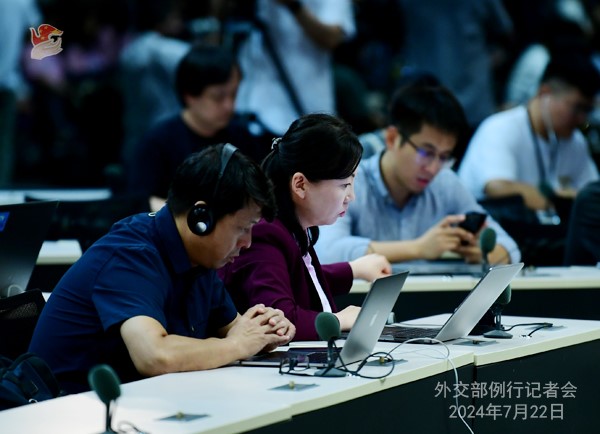
CCTV: China has taken over the rotating presidency of the Shanghai Cooperation Organization (SCO) after the Astana summit. Could you share with us how China plans to carry out its presidency?
Mao Ning: Since its inception, the SCO has upheld the Shanghai Spirit, consolidated political mutual trust, enhanced good-neighborliness and friendship, jointly safeguarded regional security and strengthened practical cooperation. The SCO has seen its influence, cohesiveness and appeal steadily grow. The SCO family now has 26 countries, up from 6 members in its early days. It has grown into a comprehensive regional cooperation organization that covers the largest area and population in the world, and the organization has followed a path of peaceful development through win-win cooperation. It provides a fine example of efforts to create a new type of international relations, and important theoretical and practical experience in exploring ways to build a community with a shared future for mankind.
Following the Astana summit in July, China has formally taken over the rotating presidency of the SCO for 2024-2025 and will host a summit in 2025 as is the common practice. China attaches great importance to the presidency and has fully started our work. In the next 12 months or so, China will be working closely with SCO partners in political, security, economic and cultural areas and give full play to the SCO’s role as a shield of security, a bridge of cooperation, a bond of friendship and a force for good in the region. First, we aim to strengthen strategic communication and mutual trust within the organization to maintain its existing level of solidarity and sound coordination. Second, we aim to enhance the SCO security cooperation mechanism in line with the vision of common, comprehensive, cooperative and sustainable security. Third, we plan to host a series of activities for the SCO Year of Sustainable Development to strengthen cooperation in such sectors as trade, investment, energy, digital economy, modern agriculture and green development, and continue synergizing the Belt and Road Initiative with the development strategies of regional countries. Fourth, we aim to promote equality, mutual learning, dialogue and mutual accommodation between civilizations and give full play to the unique role of people-to-people diplomacy in bringing people’s hearts closer. We will make the best of the role of Qingdao as the tourism and cultural capital of the SCO to provide SCO members with a high-quality platform for dialogue among civilizations and help promote mutual learning between regional countries and mutual understanding and amity between the peoples.
China will use the good opportunity of our rotating presidency to work with all parties of the SCO to build the common home of solidarity and mutual trust, peace and tranquility, prosperity and development, good-neighborliness and friendship, and fairness and justice, work towards a closer SCO community with a shared future and contribute more to the peace, stability, development and prosperity of the region and beyond.
AFP: According to China’s statement released after midnight, China has reached provisional arrangement on the situation at Ren’ai Jiao with the Philippines. According to China’s statement, if the Philippines notifies China in advance, China is willing to allow the Philippines to send supplies to the warship. But the Philippine side said today that China’s statement regarding prior notification is inaccurate and the Philippines will continue to assert its rights in its maritime zones in the South China Sea. What’s your response?
Mao Ning: Based on the principled position of China on dealing with the current situation at Ren’ai Jiao, China reached provisional arrangement with the Philippines on humanitarian resupply of living necessities, which reflects the goodwill of the Chinese side. We hope the Philippines will keep its word and work with the Chinese side to get the situation under control in a proper way.
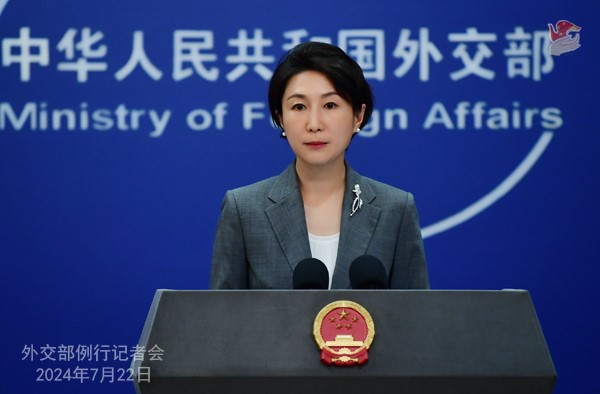
EFE: President Biden announced yesterday that he is withdrawing from the presidential race in the US. He has also endorsed his Vice President Kamala Harris as the new candidate. What’s China’s stance on this?
Mao Ning: The presidential elections are the United States’ own affairs. We have no comment on that.
Al Jazeera: The second round of reconciliation talks between Palestinian factions is being held in Beijing. Can you give us some details?
Mao Ning: China firmly supports the just cause of the Palestinian people in restoring their legitimate national rights, supports all Palestinian factions in achieving reconciliation through dialogue and consultation, and supports Palestine in realizing solidarity, unity and independent statehood at an early date. China has been and will continue to make relentless effort to this end. For anything more specific, China will release information when appropriate.
Phoenix TV: It’s reported recently that US company Viasat sanctioned by China is seeking commercial cooperation with relevant Chinese companies. What’s your comment?
Mao Ning: In accordance with China’s Anti-Foreign Sanctions Law and other relevant laws, since the circumstances based on which the countermeasures were issued have changed, China has decided to lift the countermeasures against Viasat.
Bloomberg: US National Security Advisor Jake Sullivan said the US is preparing new sanctions on Chinese entities that support Russia’s war in Ukraine, and hinted that banks may be in the cross-hairs. I wonder whether the Foreign Ministry has any comments, especially on Chinese banks’ role in the war in Ukraine.
Mao Ning: China’s position on the Ukraine crisis has been objective and just. China is neither the one that created the crisis nor a party to it, but has worked actively to enable talks for peace and a political settlement of the crisis. The US should work constructively for the political settlement of the crisis, rather than shift the blame to China and drive a wedge between China and other countries.
I wish to stress that both China and Russia are independent major countries. China and Russia have normal cooperation, which does not target any third party and should not become a target for external interference or coercion. China firmly rejects all kinds of illicit unilateral sanctions and long-arm jurisdiction and will take all measures necessary to safeguard its legitimate rights and interests.
AFP: Taiwan started its annual Han Kuang military drills today. It’s reported that the drills this year include wartime overseas supply-delivery missions. Do you have any comment on that?
Mao Ning: That’s not a question about China’s foreign affairs. What caused the tension in the Taiwan Strait is the DPP authorities’ persistent agenda for “Taiwan independence” and provocations which receive support and connivance from external actors. Let me make clear that any attempt to heighten tensions and to seek “Taiwan independence” or resist reunification through the demonstration or use of force will simply fail.
